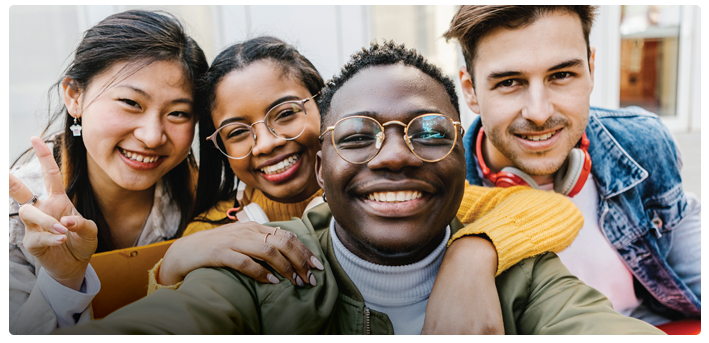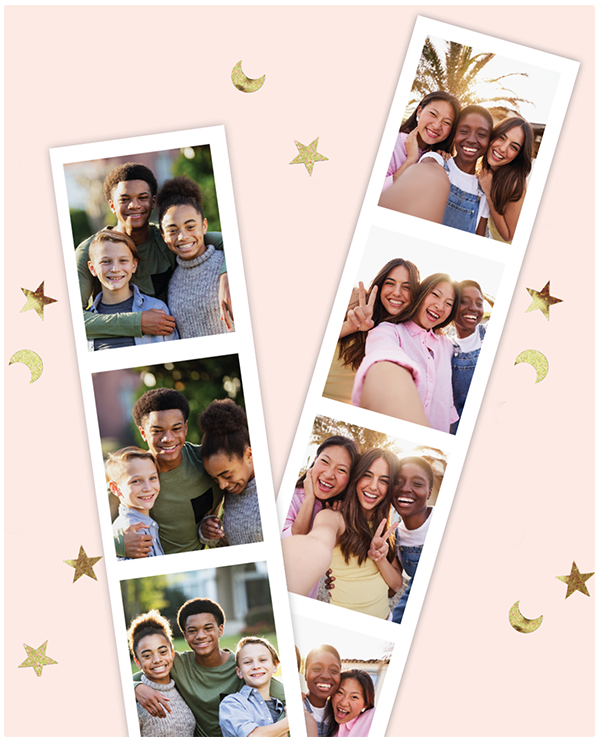Epstein-Barr and Mono Vaccine Study
The Eclipse Trial is researching an investigational vaccine to protect against Epstein-Barr virus (EBV) and infectious mononucleosis (mono)
Epstein-Barr and Mono Vaccine Study
The Eclipse Trial is researching an investigational vaccine to protect against Epstein-Barr virus (EBV) and infectious mononucleosis (mono)
Mononucleosis
NOT PICTURED:

About the Eclipse Trial
⭐ Participation in the Eclipse Trial lasts approximately 19 months and includes 15 visits to the clinical trial site and 11 phone calls with the clinical trial team
⭐ During the phone call appointments, the clinical trial doctor and trial team will check how you are feeling and ask for updates on your health
⭐ You will be asked to use an electronic diary (eDiary) app on your smartphone, or a provided smartphone, to report if you experience any side effects on the day of each injection and for at least six days after
Insurance is not needed to join this clinical trial. The investigational vaccine and trial-related procedures are provided at no charge, and participants will be compensated for their time. You have the right to withdraw from the trial at any time for any reason.

The Eclipse Trial is evaluating an investigational vaccine to protect against EBV and infectious mononucleosis
(mono) in participants ages 18 to 21, and you may be able to take part. All participants will receive
EBV testing and results at no cost. Compensation for trial-related time will be provided.
Eligible participants must:
- Be 18 to 21 years of age
- Be in generally good health
- Be willing and able to comply with trial requirements
Participants must not:
- Have been exposed to someone with COVID-19 within 14 days before screening
- Be pregnant or breastfeeding
- Have previously received an investigational Epstein-Barr vaccine
*Additional eligibility requirements apply, which the clinical trial doctor will walk you through.
The Eclipse Trial is evaluating an investigational vaccine to protect against EBV and infectious mononucleosis
(mono) in participants ages 18 to 21, and you may be able to take part. All participants will receive
EBV testing and results at no cost. Compensation for trial-related time will be provided.
Eligible participants must:
- Be 18 to 21 years of age
- Be in generally good health
- Be willing and able to comply with trial requirements
Participants must not:
- Have been exposed to someone with COVID-19 within 14 days before screening
- Be pregnant or breastfeeding
- Have previously received an investigational Epstein-Barr vaccine
*Additional eligibility requirements apply, which the clinical trial doctor will walk you through.
A clinical trial is a carefully designed research study involving human volunteers to investigate the safety and effectiveness of a new drug or treatment. Clinical trials are essential for evaluating the benefits and risks of medical interventions, ultimately informing healthcare decisions and regulatory approvals.
As a clinical trial or observational study participant, your responsibilities and what you will be required to do can vary depending on the study, its objectives, and the phase of the trial.
Some common activities and responsibilities you may encounter as a participant include: diagnostic tests, treatments, procedures, doctor visits, dietary changes, exercise and/or other lifestyle changes. Observational studies often involve minimal effort, such as completing questionnaires, sharing test results, maintaining a diet or exercise log.
Joining a clinical trial can provide access to cutting-edge treatments, close medical monitoring, and an opportunity to contribute to medical knowledge. Participants may experience improved health outcomes and specialized care while potentially receiving compensation for volunteering.
Clinical trials are designed with a strong emphasis on the safety of participants, and multiple safeguards are in place to minimize risks, including careful study design, oversight by institutional review boards and routine monitoring of study data by independent experts. Researchers must inform participants of the risks, benefits and/or side effects they discover.
Yes, you can drop out of a clinical trial study at any time, and you have the right to do so without facing any penalties or consequences. This is often referred to as "withdrawal of consent."
Voluntary participation is a fundamental principle of clinical research. You are not obligated to continue in a trial if you no longer wish to do so.
Determining your eligibility to participate in a clinical trial involves a thorough evaluation of specific eligibility criteria set forth by the study's researchers and sponsors. The criteria help define the patient population being studied and are designed to protect the safety of participants in the trial.
Providing accurate information about your medical history and health status is crucial for your safety and the integrity of the research. If you are not eligible for one trial, you may still be eligible for other trials in the future, so it's worth exploring your options if you are interested in participating in clinical research.
Yes, we do! Have a friend or family member who may also want to participate in one of our studies?
For qualifying studies, we offer a $25 gift card for each friend or family member that you refer. Restrictions apply. Please ask about our referral program during your screening visit.
